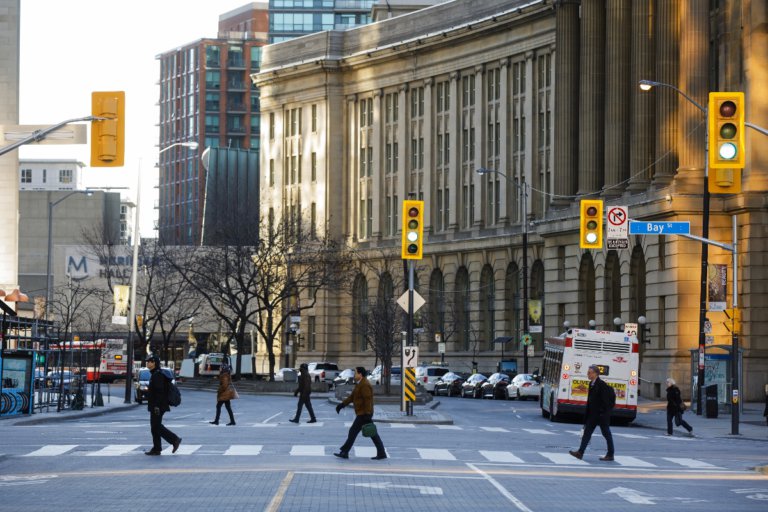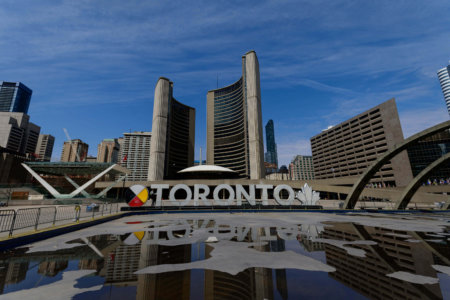
International students in Canada are calling for the country to make post-graduate work permits (PGWP) renewable as it will affect their eligibility for a Canadian permanent residency. Scores of international students flock to Canada in pursuit of world-class education and the opportunity to gain work experience after studying. The permit allows international graduates to work in Canada for a period of up to three years, but COVID-19 has put students in a pickle. Many are now unable to find jobs that are needed to become a permanent resident in Canada. With their PGWP non-renewable, this makes it difficult for them to stay in the country.
OMNI Television reported that current and former international students rallied outside Minister of Immigration, Refugees and Citizenship Marco Mendicino’s office on Nov. 24, 2020, calling for changes to Canada’s immigration laws and to give more rights to non-permanent residents in the country, in addition to making the PGWP renewable. Over 16,000 signed petitions from across Canada were handed to Mendicino’s office.
Migrant Students United, an advocacy group for international students and graduates, told The Star that thousands of post-graduate work permit holders are running out of time and facing removal from Canada. “Migrant student workers have lived and studied here. They have set roots here and built social and community connections here. They have also performed skilled and essential work in Canada,” said rally organiser Sarom Rho. It’s in Canada’s interest to make their work permits renewable — Canada won’t be able to meet its annual immigration target for 2021 without them, according to Rho.
Min. @marcomendicino: Thousands of migrant student workers are being punished for a crisis not of our making & are facing deportation. You need to make the post graduate work permit (PGWP) renewable, value all work toward PR and ensure full & permanent immigration #StatusforAll! https://t.co/4Ua5OTbIYC
— Migrant Workers Alliance for Change (@MWACCanada) November 23, 2020
The current PGWP cannot be renewed and is only issued once. Students will need to apply for permanent residency before their work permit expires or risk being deported. Completing one year of employment can qualify them to apply for permanent residence.
The Canadian government hopes to welcome over 1.2 million new Canadian permanent residents in the next few years, and international students in Canadian universities are expected to play a major role if they remain in the country after graduating.
COVID-19 has thrown a spanner in the works by presenting employment challenges for international students, who are worried they will not find jobs — or lose their jobs — and be forced to return to their respective countries. Rho told OMNI Television that due to the pandemic and an unsable economy, students are unable to find skilled, managerial or technical roles that would allow them to qualify for a Canadian permanent residency. Students say the requirements for graduates to gain a Canadian permanent residency are too stringent, while restrictions are being reinstated amid a spike in COVID-19 cases. Meeting such requirements is nearly impossible in this climate, they say.
“The second wave of lockdowns means that our workers are working more, without basic access to rights and protections. Which also means that it is impossible to find high wage jobs that the government sees valuable to count for permanent residency,” said Rho.
Roadblocks to a Canadian permanent residency
Everyone must stay home for 4 weeks except for essential reasons, listed here: https://t.co/Wt4Tt20HlO #COVID-19 #TorontoLockdown pic.twitter.com/gTYDws6x0m
— Study International (@Study_INTNL) November 25, 2020
“Right now to get permanent residency in this country, you must do 12 to 24 months of high wage work. During a pandemic, several students are finding it tough to get high paying jobs,” said Syed Hussan, the executive director of advocacy group Migrant Workers Alliance for Change, to OMNI Television. He added that on Dec. 31, 2020 all work permits in Canada that have expired will no longer be renewable, which means thousands of people will lose status in the country.
One such student who is in a similar predicament is Shiva Montazeri. Speaking to The Star, the Iranian who graduated with a master’s degree at Brock University, is facing the prospect of having to leave the country after her PGWP expired last month without the Canadian work experience she needed to qualify for permanent residence. “My work permit was for a duration of one year, but in reality, I only got four months out of it. Because of the pandemic, no one is hiring,” said Montazeri, who lost her job as a bookkeeper in St. Catharines in March.
Rho said it would make sense for the federal government to retain prospective permanent residents such as Montazeri, who are educated and established in Canada, and who have paid rents and taxes, among other investments, to the country. “If they are forced to leave, it’s going to have a devastating impact on our economy as well,” she said.










